Written by Tim
Ever since man first got drunk at a work Christmas party, and accidentally told his boss “how to fix what’s wrong with this company”, people have dreamed of time travel. The ability to shift through the firmament of time, as though it were water. To fix the problems of the past, and hit on aliens in the future. Time travel really hit its stride in the late 19th and the 20th centuries, and became a standard fixture of novels, short stories, and eventually television. Even though the concept has been used frequently (and often badly) there are still interesting ways to play with the idea. Here are 15 of the finest time travel stories ever put on paper.
15. Connecticut Yankee in King Arthur’s Court by Mark Twain

A pre-20th century choice, Connecticut Yankee has the distinct pleasure of having being adapted into a number of absolutely horrific films, each using a different–and equally stupid–take on the tale (see A Kid in King Arthur’s Court, A Knight in Camelot, and Black Knight). For some reason, this story seems to draw shitty, family friendly remakes like Twilight fans to a glitter sale. It’s horribly ethnocentric (temporacentric?), but functioned as a biting criticism of the over-romanticisation of the past. Twain was always at his best with satire, and making fun of 6th Century England is perhaps an easy target. Yet reading Connecticut Yankee in this day and age also serves as an interesting view on how people in the late 19th Century viewed themselves compared to their antecedents.
14. Saga of Pliocene Exile by Julian May

Spread across four novels (and a few followups):The Many Coloured Land; The Golden Torc; The Non-Born King; and The Adversary, the Pliocene Exile saga wins major points for its innovative central concept. 21st Century minor criminals, misfits and ne’er-do-wells are offered the opportunity to escape the rigors and overcrowding of the present, by taking a one-way trip back to the Pliocene (circa 5.3-2.8 million years ago), with the view that they’ll be in a wild paradise. Instead, they arrive to find the past inhabited by a dimorphic race of alien religious extremists, who enslave humans as soon as they get there. The books do run long—as is often the case with SF and Fantasy—but manage to keep things fresh, and provide interesting nods to the prehistory of our planet.
13. Looking Backward: 2000-1887 by Edward Bellamy
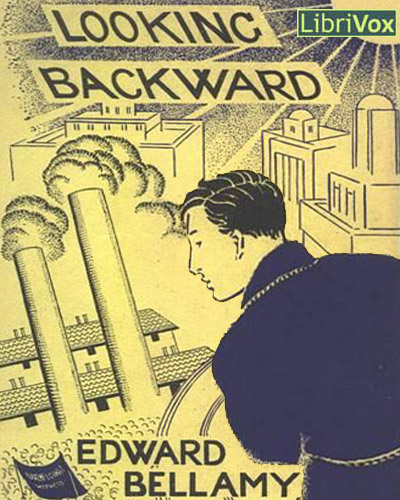
Looking backward was written in 1888, and once perfectly described “…one of the few books ever published that created almost immediately on its appearance a political mass movement.” The time travel, and even plot, of Looking Backward are superfluous, and only present as a way of delivering Bellamy’s Socialist message (actually Socialist, not teabagger “Socialist). It’s the tale of a young man who slips into a coma, and wakes in the far future, where the United States is a Socialist paradise, everyone works for the good of all, and the quality of life is unparalleled. Bellamy’s work was an overnight sensation, inspiring clubs devoted to his ideals, utopian communities, and a political movement. It was extremely influential, and remarkably prescient on a number of issues.
12. Night Watch by Terry Pratchett
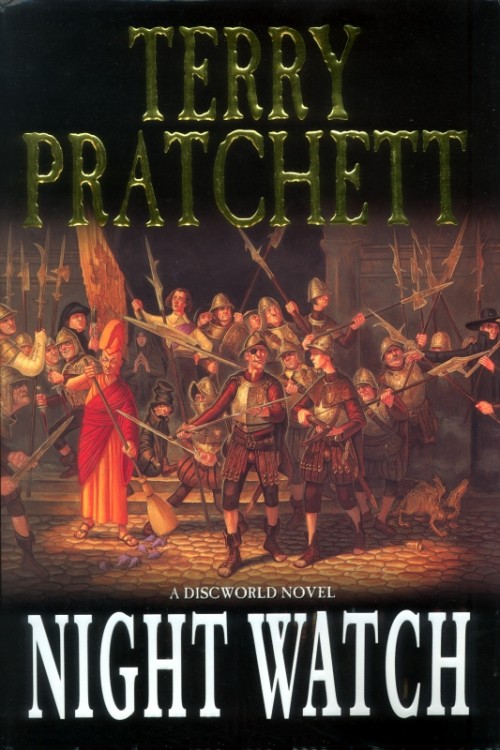
Terry Pratchett is a fantastical and hilarious author, and the Discworld series has more fans than any 40-odd long series of books has a right to. They’re consistently funny, and brim-filled with ideas and wit. Night Watch is part of the City Watch cluster of books, and deals with erstwhile leader of the Watch, Sam Vimes, being dragged back in time, and assuming the identity of his own mentor while coping with his younger self, and trying to control a revolution, which for him has already happened. The wonderful, and repeated, scenes of Present Vimes teaching Young Vimes the lessons he remembers from what he thought was his mentor are particular favorites, and Night Watch is some of Pratchett at his best.
11. The Dancers At The End Of Time by Michael Moorecock
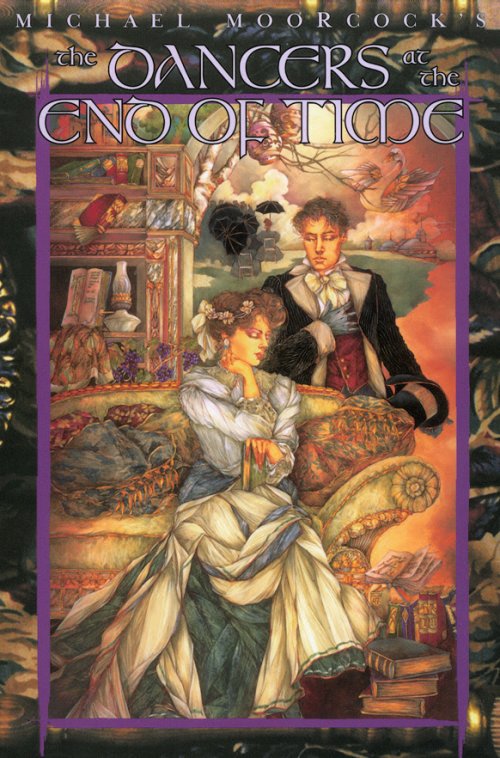
If you’ve not encountered Moorecock before, you’re doing yourself a disservice, as his writing completely changed the face of British literature in the 60s and 70s–an managed to spawn unutterably bad copycats in all directions. The Dancers At The End of Time is a series of books focussed on the decedent and immortal inhabitants of a time period where entropy is causing the universe to collapse. They are utterly without morals, which they see as passé, and flit about the timestream on whims, searching for diversions. Moorecock’s writing is utterly languid and sublime, a sexual acid trip in a period when free love actually meant something, and was taken to its utter extreme. Dancers never achieved as much recognition as some of his other work, and is a more surreal, introspective and less violent, and revels in its debauchery.
10. Pastwatch: The Redemption of Christopher Columbus by Orson Scott Card
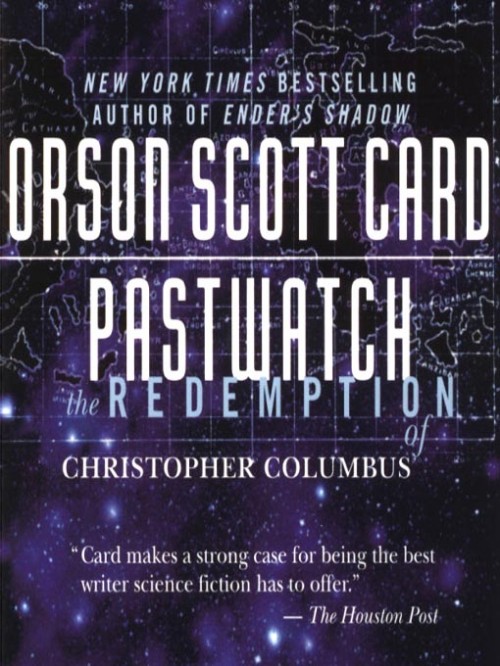
OSC is very easy to paint as a homophobic misogynist, and a man full of hate, because, well, he is. He’s also an excellent writer, as anyone who ever read Ender’s Game will tell you. Pastwatch is one of the few novels he managed to write with a female character who wasn’t just there as mother or lover. He created a nuanced tale of future scientists watching Colombus’ westward exploration, and its everlasting effect on our own society. They eventually realise that he was sent westward by a similar group of scientists, from an alternate timeline, attempting to prevent an even worse fate for the planet. The scientists in our own timeline then send back three of their own to various junctures in history, to try again to create a better outcome than the eventual genocide of Native Americans. The book really hits its stride in the final third, when it deals with the trio in the past, trying to right the potential wrongs of the future, while knowing they’ll never see the result.
9. The Light of Other Days by Arthur C. Clarke and Stephen Baxter.
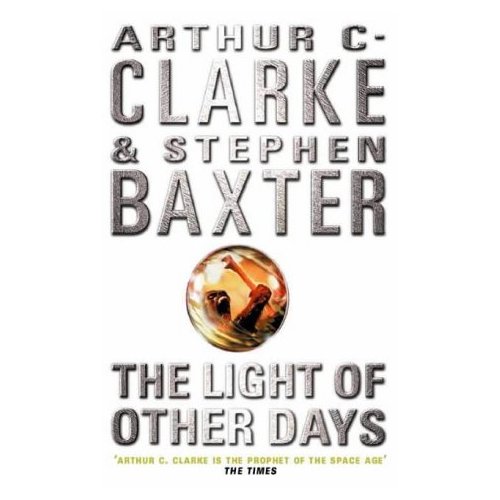
Once, there was a very shitty science fiction book called Timeline, by Michael Crichton, which used quantum foam as a way of sending college students to the medieval era for hijinks. Then, around a year later, came a truly excellent novel by Clarke and Baxter, also focusing on the theoretical possibilities of quantum foam—but for time viewing instead of time travel. Through wormholes, people became able to watch any point in the history of humanity. The Light of Other Days is a brilliant sociological analysis of a culture where privacy becomes completely non-existent. When someone can look at any event ever (including the present), Governments grind to a halt, and modesty becomes a relic—apart from a small group dedicated to attempting to avoid being watched. It’s Clarke and Baxter at their bests, with a deep philosophical view on the possible implications of this technique. Though the ending comes completely out of left field, and makes little sense.
8. The Time Quartet by Madeline L’Engle
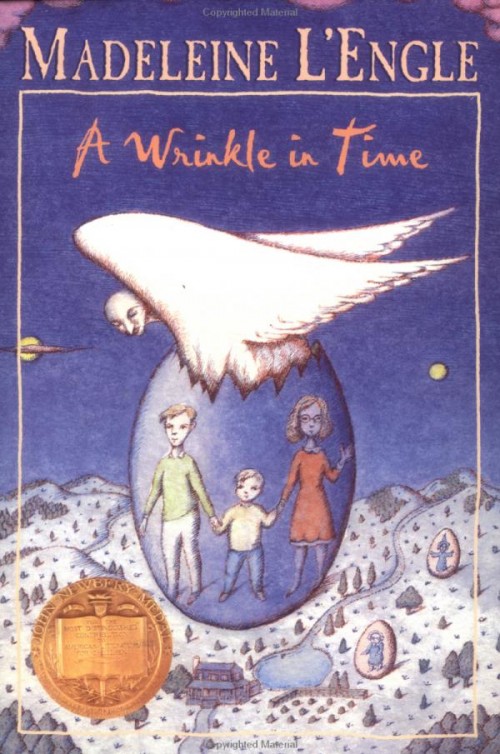
One of the finest young adult series to be had, the first volume—A Wrinkle in Time—deservedly won the Newbery Award. Young adult literature functions best when it actually bothers to treat its readers as intelligent human beings, and L’Engle does this with aplomb. The quartet deals with morality, belief, and good and evil, while taking place across the a universe of time, space and scale. While some find L’Engle’s religion off putting—either for being too Christian, or not enough—within the context of the novels, it’s seen as part of a larger universal force for good.
7. The Book of the New Sun by Gene Wolfe
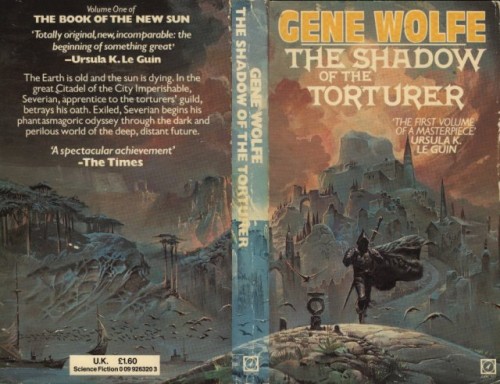
Another multi-volume choice, but the four part Book of the New Sun flows continuously from one novel to the next, reading a single unit. The reason it’s included on this list isn’t that the story involved time travel, but that the book itself is an artifact from another time. The tale is based on a journal from the future, flung into the recesses of the past. The story told in the Book of the New Sun is one of the clearest examples of science fiction as literature as you can find, and one of the few SF stories that’s actually had an entire book devoted to its analysis published. Any budding linguists out there will do well to read it, as Wolfe’s approach to the language of the future is masterful, crafting argot from similar roots to modern English, so they sound familiar, but still unrecognized.
6. The Time Traveler’s Wife by Audrey Niffenegger
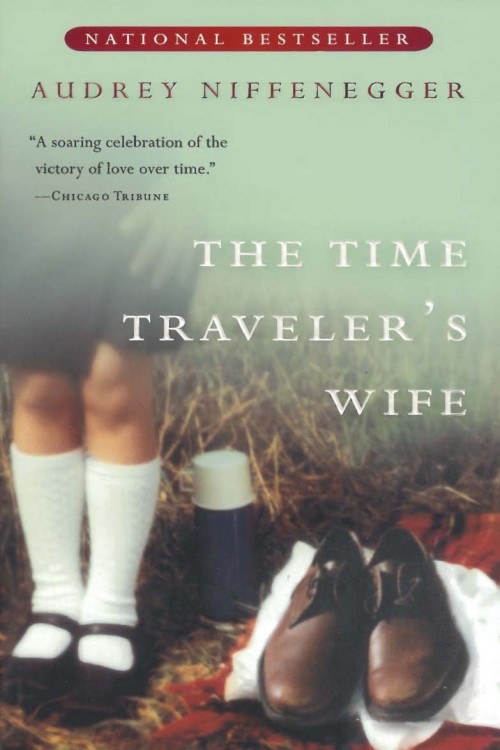
Yes, I know I completely lose any guy cred for choosing this. I totally don’t care. It’s a beautiful love story about a man with a genetic condition that causes him to randomly pop around the timeline, the woman who loves him, and their desperate struggle to have a relationship. It’s saccharine and cliché, but it’s a love story, it’s meant to be. How each of the main characters meets the other for the first time, at various points in their lives, are particularly well done, and the ending of the story is particularly heart-wrenching, though telegraphed. The story’s pace is perfect, and while it won’t mentally tax you the way some of the other stories on this list will, it makes a perfect lazy read.
5. The Restaurant at the End of the Universe by Douglas Adams

If you haven’t read the Hitchhiker’s Guide Trilogy yet, then you are a horrible, horrible person. You probably push old ladies into incoming traffic, and believe in trickle down economics. Seriously, I steadfastly refuse to believe that anyone of decent worth has not read the Hitchhiker’s guide, so go do it. In those hallowed pages you will find the most bitterly hilarious and tragic comedy to be set on paper. Including, among other things, time travel, and the original colonization of Earth by a ship full of middle managers, hairdressers and telephone sanitizers.
4. The Time Machine by H. G. Wells
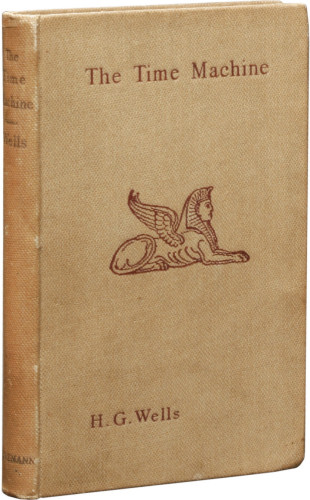
The one, only, and classic. One of the few time travel stories from the 19th Century, H.G. Wells’ seminal tale told of the Time Traveller, and his shifting through the ages. The most commonly known chunk of the story is when he visits the year 802,701 AD, and comes across the peaceful but aimless Eloi, and the brutal subterranean Morlocks. However, the book continues further, as the Traveller continues onwards, watching the Earth slowly die, and the Sun turn cold. This novelette popularised the concept of time travel via a vehicle (rather than by accident, as with other older stories), and without it we wouldn’t have the breadth of this genre that we all love.
3. The short stories of Philip K Dick
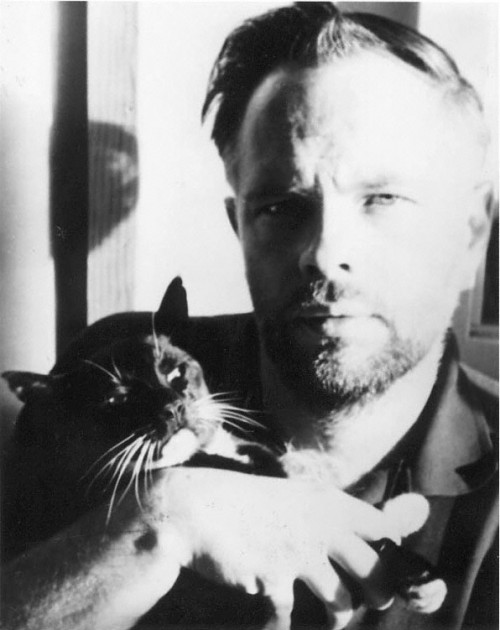
A full half this list could easily be devoted to the short stories of legendary (and drug addled) author, Philip K. Dick. So we’ll just combine them into one big lump, and call out a couple of great ones. Forget the crappy Ben Affleck adaptation, Paycheck is a tense thriller about a man who has his mind voluntarily wiped as part of a job, and when he comes to, instead of a large paycheck he has six random objects; The Skull tells the story of an assassin sent back in time to kill the founder of a new religion, with only the man’s skull from the future as a guide to his target; finally The Variable Man is perhaps my favorite, the tale of a man from the early 20th Century accidentally hurled into the future and getting dragged into an alien war. Dick’s work is always hard to summarize without giving away too much, so go and grab a book of his stories, they’re universally mind blowing.
2. Slaughterhouse-Five, or The Children’s Crusade: A Duty-Dance With Death by Kurt Vonnegut
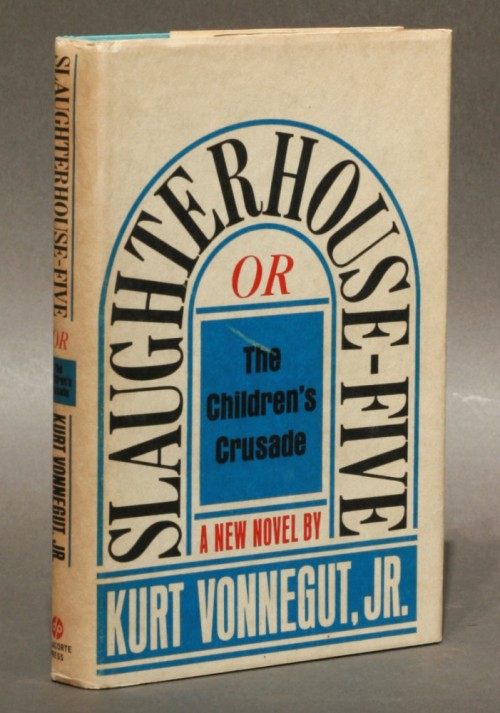
Vonnegut’s most well known work, Slaughterhouse-Five rightly belongs on any list of great novels, especially one focused on time travel. It concern’s Billy Trout, WWII POW unstuck in time. He simultaneously and out-of-order experiences his past, being at war, being a prisoner of the Germans, the firebombing of Dresden, his experience as an exhibit at an alien zoo, his life after the war, and his eventual murder. The bleak fatalistic view of the novel is marked and re-marked by the constant recurrence of the line “so it goes.” As ever with Vonnegut, his writing is bittersweet and touching.
1. —All You Zombies— by Robert Heinlein

All You Zombies is one of the greatest, and most twisted, time travel stories ever imagined. It’s available in its entirety online, and well worth the time. I won’t spoil this magnificent story, but the twists pile on one another, each one making you revisit the previous, until the final reveal. It’s one of the few stories where it probably wouldn’t hurt to make a diagram as you go, to keep track of what happens. The title itself is a reference to one of the final lines in the story, in itself packed with portent, “I know where I came from—but where did all you zombies come from?”
A good list with a number of books I have missed. Something to do over my next vacation.
Ummm. Bill and Ted’s Excellent Adventure cant crack this list!!!! Books or Movies i dont care, it has to be on there.
Trickle down does work. If those on the bottom want more of the trickle, then they need to work harder to achieve more and thus receive more from the wonderful capitalist system. FREEDOM!!!!!!!!!!!!
For that theme in music, I recommend Ayreon (all their CDs are part of one big story)
“The end of eternity” I. Asimov, one of his few S.F books not set in the same Foundation universe.
I watch movies more than I read, but the list prompted me to order a couple of the books!
As for time travel in movies:
The Mailbox. Didn’t read; but saw the original movie and the remake. Both pretty good.
And of course Somewhere in Time with Christopher Reeves.
Back to the Future! Hokey, but classics on time travel and its paradoxes.
The Philadelphia Story. Very well done in the original; Sequel not so good but ok.
Note: Billy PILGRIM, not Billy Trout. Looks like you mixed him up with Kilgore Trout. A little.
This should be changed, I think.
A couple on your list I would dispute, forex I am not as entranced as you are with the Hitchhiker books or Terry Pratchett. Have you seen “Time for Patriots”? It’s a novel (published 2008 by Strategic Book Publishing) going back to 1770, and exploring changes in America, central Europe, Algiers, and the life of Mozart from contact with people from the 21st Century. Some subtle humor, including in the last chapter very funny satirical analyses of two of the stories you list (Wells and Heinlein), and one you omit, DeCamp’s “Lest Darkness Fall”, which I am amazed did not make your list.